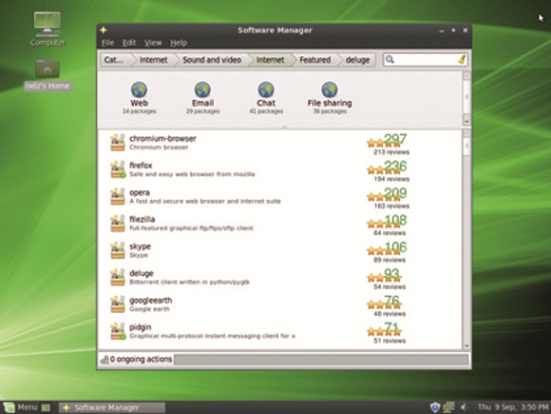1. Linux is free
The cost of Linux operating system is zero. We can install it on as many computers we want, in these days of multi-computer households, this can be a huge saving, mainly when we regard as the cost of all the programs we have to add to standard Windows installation.
2. Software repositories

Encompassing all software you require in one place saves you having to search web to find program you are missing. It also signifies software has been separately checked and digitally signed by the distro's developers, making it almost unfeasible to select a root-kitted version.
3. Rapid evolution
Most Linux distributions have updated release every six to nine months (with obvious exception of Debian). If you don’t like inverted menus or whatsoever features, Ubuntu makes a decision to add to its existing release, you can skip it – the next version will be just months away.
4. Powerful shell
As some criticise Linux for its utilization of shell, this in fact is a powerful advantage. Easy GUIs are good, and we require being able to perform standard administration and configuration tasks utilizing a GUI, but at times shell can be so much faster and more elastic, not like a DOS box.
5. Multiple desktops
Have you ever seen a Windows user trying to cope with many programs and windows on screen at once, supposing they have sufficient resources to run many programs? Numerous desktops makes it simple to have many programs and windows open all at once, but just have to deal with ones you are utilizing right now.
Such as, you could have your email and internet on one desktop, a game on another and the work you are supposed to be doing on another. A flick of mouse is all that is needed to change between them.
6. Drivers included
Some claim that Windows 7 maintains more hardware than Linux. Actually, the reverse is true. Windows 7 sustains very little hardware – most hardware needs you to install drivers from manufacturer.
In contrast, the majority of hardware is supported openly by Linux kernel, so you can simple plug and play – this is one of the reasons live CDs function so fine.
7. Runs on any platform
Linux runs on any hardware, from mobile phones to supercomputers. The open source environment of kernel and software means it can be ported to architecture by third party if existing developers see no need. The end user does not require caring about underlying hardware.
8. No commercial deadlines
Release of a commercial operating system needs much planning in terms of organizing marketing and promotion, so release dates are hold to, even if software is not ready.
Linux distros have no such stress, and tend to accept a 'release it when ready' approach, which means there are fewer post-installation bugs to deal with.
9. Interoperability
Linux plays well with other systems. It identifies that there is a place for Windows and Mac OS X and will install beside them, share files with them, and normally be nice to them. This is very dissimilar from Windows view that multibooting means selecting between Windows 7 and Vista.
10. Any colour you like
Everything on Linux has alternative, from desktop you utilize to package manager and even filesystem holding it all. You can choose what is best for your requirements, whether you desire impressive eye candy or fast and light for older hardware.
11. Pick and mix
With Linux, there is no trade vendor trying to catch you into definite products or protocols. In its place, you are free to mix and match and decide what works best for business. If you wish to execute KDE programs on a Gnome desktop or even other way round, you can. You can choose If you desire cherry pick best bits from each distro. There are even DIY distros, like Gentoo, which enable you to build custom environment.
12. Security
Linux is inherently more secure than Windows, as security is a feature of core system, not a bolted on afterthought. With firewall at the heart of a kernel and virtual impossibility of slipping malware into software repositories, Linux computer can dedicate all its resources to running programs, other than to be bogged down with security programs executing all time.
13. Lack of malware
Malware is nearly unheard of on Linux. This is chiefly down to open source nature of software. If you install from your distro's repositories, you know software has been checked by them.
14. Thousands of programs included
A Linux distro is not merely the operating system; it comes with thousands of free applications. Whereas other systems think a desktop, web browser and mailer to be all you require, a typical Linux distro comprises everything you could maybe want: internet tools, multimedia and games office software. If it is not on installation disc, there are thousands more available for download.